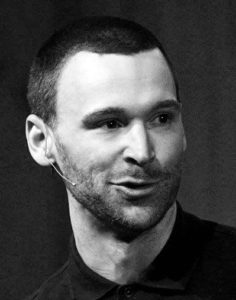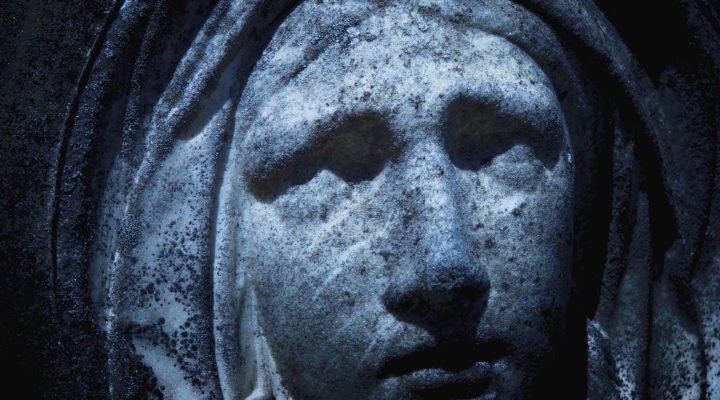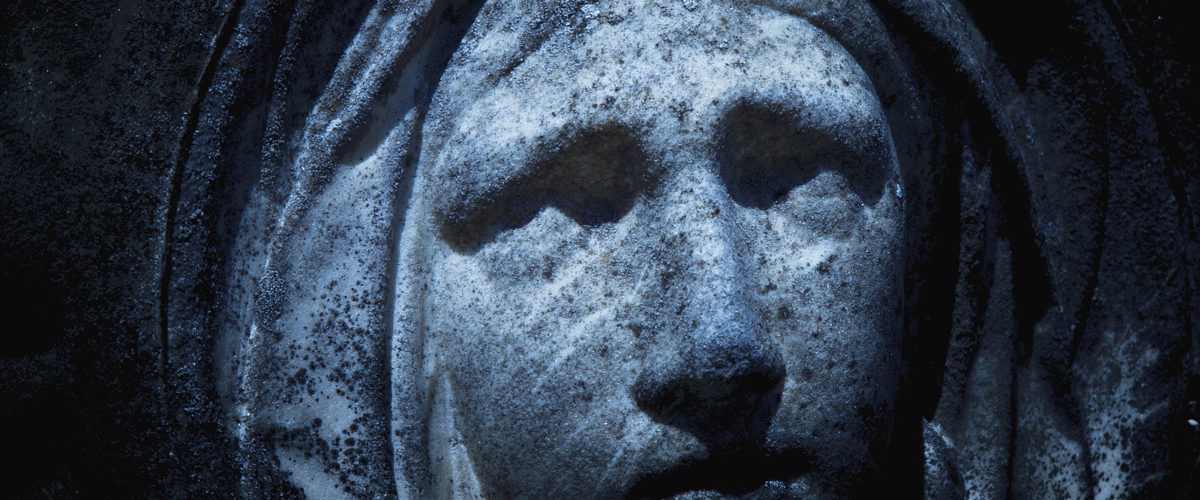Early in my pastoral career, I once met a woman who had recently lost a child during pregnancy due to a serious car accident. In the midst of her quiet witness to the sudden death of her unborn child, I responded with what I believed to be a heartfelt, “I’m so sorry.” Upon hearing me, she immediately looked up and gravely intoned: “Oh, honey, I’m not. My parents had been out of church for years, and now my baby’s death has brought them back to the Lord. This was all part of his plan.”
While I may have heard about this “God’s plan” before, I had yet to meet quite so happy a victim of it.

Eric Minton
Only after becoming a therapist years later did I begin to understand that the true complexity of any healing profession isn’t found in grappling with the accompanying trauma and grief inherent in uncovering an individual’s, couple’s or family’s pain. Rather, I find it entirely more challenging to hold someone, without judgment, in the presence of their own grief long enough to let it speak to them about what kind of world they were owed and yet never received.
Aired grief allows us the gift of bravely asserting the inherent worth of our dreams and longings as something more than the merely superfluous, fatalistic speedbumps more powerful people (or gods) trod over on their way to glory.
Grief is an inconvenient demand that we and everyone around us make unbroken eye contact with the beauty of a world, a life, a moment, that has been lost and never will be recovered. It is not popular, marketable or productive, and that is precisely why it is so important.
Recovery of grief
Writing after the death of his own teenage son, Taylor, Bruce Rogers-Vaughn passionately advocates for the “recovery” of grief as that which gives birth to faith:
But if we have ears to hear, we discover that the cries of grief are at the same time the birth pangs of faith. And this is the other side of the dialectic of faith as it emerges from grief. Grief, if we allow it to appropriately devastate us, breaks the hold that the mesmerizing everydayness of our world has upon our souls. It makes us aware of that deeper reality from which we live and move and have our being. It is only in this sense, it seems to me, that we can speak of God as being present to us. It is a presence that, as in grief, comes not instead of or in spite of absence, but through and by means of absence.
Fully incarnate humanity isn’t found by pitting the thoughtful benefits of our logical aloofness against the passions of our incoherent emotionality in some cycling game of zero-sum bipolarity. Instead, to be fully alive is to feel the richness and depth of an emotional register that far outpaces the cast of Disney’s Inside Out.
Something we do
“Anger or sadness is something we do in response to a deeper experience.”
In my therapeutic tradition, we understand emotions like anger or sadness to be responsive. What I mean is that instead of serving as the final answer to that old therapeutic chestnut “And, how did that make you feel?” anger or sadness is something we do in response to a deeper experience formed over years of sit-coms, middle school and what alienating therapists at dinner parties call “attachment based injuries.”
This is a clinical way of describing the moments our identity and sense of safety found themselves suddenly up for grabs in our families of origin. Whether we were left behind at soccer practice, forced to make up for the missed opportunities of our parents, or ruthlessly compared to our siblings — all these moments prove formative in the creation of a pain that sounds less like “frustration” and more specifically like being alone, ignored, overlooked, abandoned, not good enough, worthless or, for many of us, failure.
What I’m saying is that it isn’t just that we feel angry or cynically withdrawn from one another in the midst of our unending pandemic hellscape because of some inherent, individual brokenness or lack of intestinal fortitude. It’s that our anger and withdrawal are symptomatic of far deeper (and pre-existing) feelings of hopelessness and worthlessness installed by a broken family system and maintained by a socio-economic system that has monetized our discontent as a form of frenetic fuel (spoilers: you’re reading this on Facebook).
“God, in America at least, is always rebranding our pain for us.”
And, thanks to the ways in which we have thoroughly internalized the values of capitalism, many of us have become quite practiced at quickly transforming the collective and individual pain of being alive into productivity, consumption and compelling Christian testimonies. God, in America at least, is always rebranding our pain for us.
Which is why, maybe now more than ever, it is so terribly important to give a full hearing to the deep complexity of our grief as a devotional act before immediately getting stitched up, freshly medicated and right back to work.
Let your pain speak
To be clear, the silencing of our pain isn’t the point of life or theology or therapy. That’s anesthesia.
Instead, when we allow pain enough space to truthfully incarnate the authenticity of our lives — currently defined by trapping our kids in our houses for fear that they might die or kill family members, or sending them to school while constantly harboring the fear that they might die or kill their teachers — this is what it means to be fully, unconquerably, complexly alive in a world demanding that we pivot, stay positive, and #grind.
Rather than representing some sort of heretical “doubt,” prolonged, pandemic grief is a prophetic refusal to allow our pained humanity to be rebranded as anything but the full expression of what true faith looks like when it gets brutally let down by the God in whom it placed its trust.
I’m saying your anger, disappointment and hopelessness aren’t evidence of a lack of faith, but are instead what real, resurrected faith looks like when it has been killed, crushed and abandoned, but somehow keeps showing up at meetings anyway. Except that this time, it has signs, chants and double-checked mail-in ballots.
Eric Minton is a writer, pastor and therapist living with his family in Knoxville, Tenn. He holds a bachelor’s degree in psychology from the University of Tennessee, a master of divinity degree from Fuller Theological Seminary and a master of science degree in clinical mental health counseling from Carson-Newman University.
Related articles:
My Coronavirus Summer: Coping with grief and seeking joy
Learning the mixed metaphors of grief, a primary color
Amid a pandemic and a fractured nation, how do we live ‘in the meantime’?


